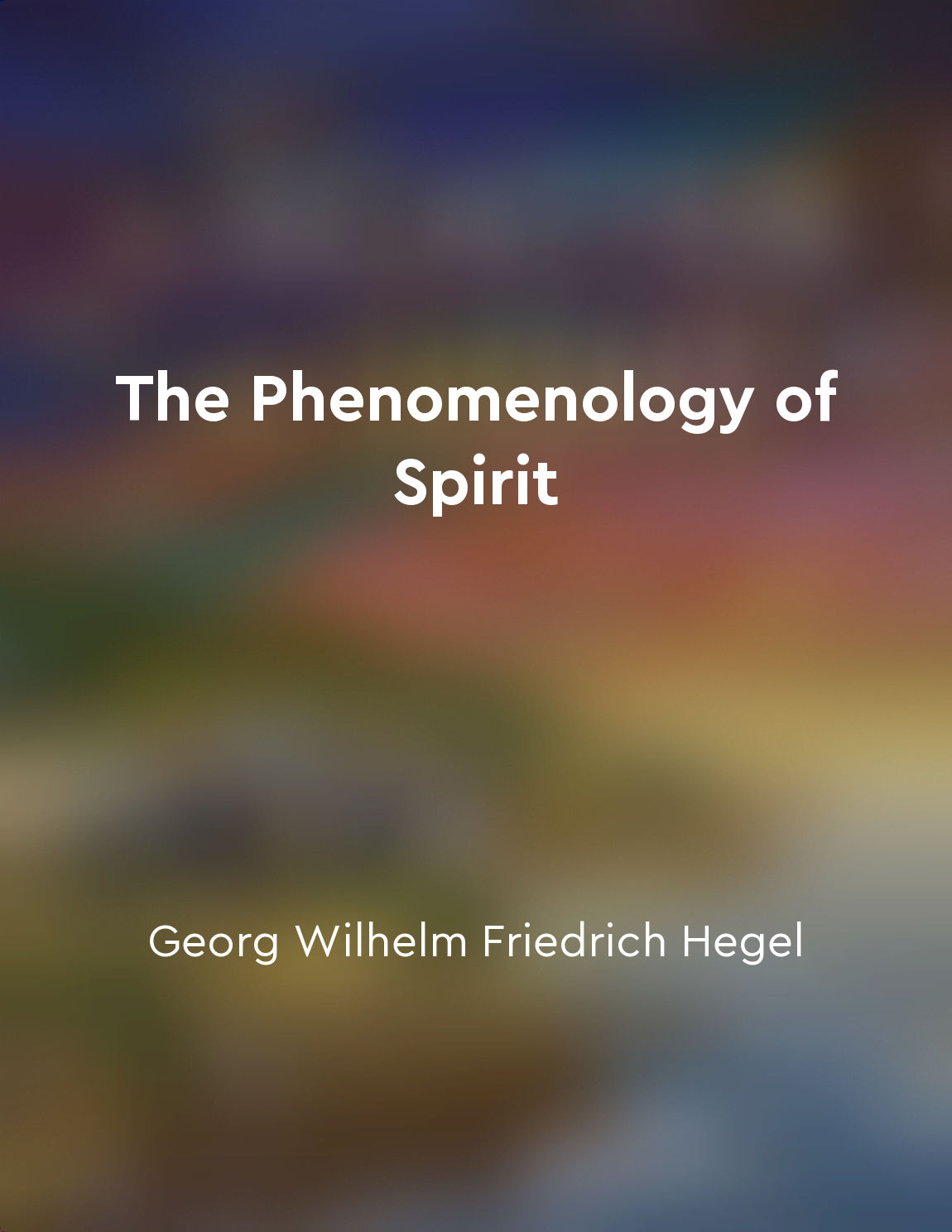Theory of Knowledge from "summary" of The Problems of Philosophy by Bertrand Russell
The problem of knowledge is one of the most fundamental issues in philosophy. It is concerned with the nature and limits of human knowledge - what we can know and how we can know it. This problem is known as epistemology, and it has been studied by philosophers for centuries. One of the key questions in epistemology is how we can be sure that our beliefs are true. This is known as the problem of justification. In other words, how can we justify our beliefs about the world? One approach to this problem is the theory of knowledge, which seeks to provide a systematic account of what knowledge is and how it is acquired. According to the theory of knowledge, knowledge is justified true belief. In other words, for a belief to count as knowledge, it must be true, justified, and believed. This definition has been the subject of much debate among philosophers, with some arguing that it is too narrow and others claiming that it is too broad. One of the challenges of the theory of knowledge is determining what counts as justification for a belief. There are many different theories of justification, including foundationalism, coherentism, and reliabilism. Each of these theories offers a different account of how beliefs can be justified and what constitutes a good reason for believing something. Another important aspect of the theory of knowledge is the question of how knowledge is acquired. This issue has been explored by philosophers such as John Locke and David Hume, who argued that knowledge is derived from sensory experience. Other philosophers, such as Immanuel Kant, have suggested that knowledge is shaped by our mental faculties and the structures of our minds.- The theory of knowledge is a complex and multifaceted field of study that seeks to understand the nature and limits of human knowledge. By examining the definitions of knowledge, the nature of justification, and the sources of knowledge, philosophers can gain insight into how we can know the world around us.
Similar Posts
Sympathy plays a role in morality
Sympathy is a powerful emotion that plays a significant role in shaping our moral judgments and actions. When we witness the su...

Subjective and objective dimensions
The movement of the Concept is the self-establishing, alienating process of the Concept. The Concept is the unity of the object...
The quest for equality and human rights led to social and political movements
The struggle for equality and the recognition of human rights have been driving forces behind some of the most significant soci...

Morality should not be based on fear or coercion
Morality cannot be built on fear or coercion, for such a foundation is weak and ultimately unsustainable. When individuals are ...
Philosophy continues to evolve and adapt to new challenges and ideas
Philosophy has always been a dynamic field, constantly transforming and responding to new challenges and ideas. From its origin...
Philosophical exploration promotes global unity
The idea that philosophical exploration can lead to global unity is not as far-fetched as it may seem. By engaging in deep and ...
The search for truth requires an open mind
The pursuit of truth demands a mind that is receptive and willing to accept new ideas. Without an open mind, one is limited in ...
Rationalism and empiricism are complementary
Rationalism and empiricism are two opposing approaches to gaining knowledge. Rationalists believe that knowledge is derived fro...
Infinity is a fundamental concept in understanding the world
Infinity, a concept that has perplexed and fascinated thinkers for centuries, plays a crucial role in our understanding of the ...

